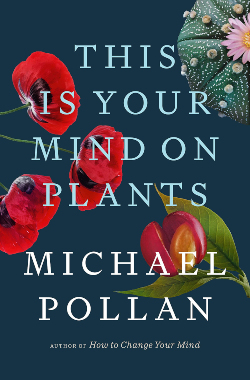2018 School Spending Survey Report
This Is Your Mind on Plants
COPY ISBN
 In How to Change Your Mind, Pollan examined the history of hallucinogenic drugs and their social status. His newest extends his examination to three non-hallucinogenic, yet consciousness-altering naturally occurring plant derivatives: opium, caffeine, and mescaline. The section on opium consists primarily of an essay he wrote in 1996, when growing certain poppies in one’s garden could result in being arrested by the DEA. The war on drugs was being vigorously prosecuted, and poppy enthusiasts were low-hanging fruit; ironically, Purdue Pharma began marketing OxyContin the same year. While we might not think of caffeine as a mind-altering drug, Pollan points out that many of us have come to see the sensations induced by caffeine as a normal state of being. He narrates his own attempts to quit caffeine, as well as the economic exploitation of coffee and tea growers. His section on mescaline discusses the significance of its source (the peyote cactus) for Indigenous cultures in southern Texas and northern Mexico; the dwindling ranks of peyote cacti in the wild; and the tension between drug decriminalization and peyote’s cultural appropriation.
In How to Change Your Mind, Pollan examined the history of hallucinogenic drugs and their social status. His newest extends his examination to three non-hallucinogenic, yet consciousness-altering naturally occurring plant derivatives: opium, caffeine, and mescaline. The section on opium consists primarily of an essay he wrote in 1996, when growing certain poppies in one’s garden could result in being arrested by the DEA. The war on drugs was being vigorously prosecuted, and poppy enthusiasts were low-hanging fruit; ironically, Purdue Pharma began marketing OxyContin the same year. While we might not think of caffeine as a mind-altering drug, Pollan points out that many of us have come to see the sensations induced by caffeine as a normal state of being. He narrates his own attempts to quit caffeine, as well as the economic exploitation of coffee and tea growers. His section on mescaline discusses the significance of its source (the peyote cactus) for Indigenous cultures in southern Texas and northern Mexico; the dwindling ranks of peyote cacti in the wild; and the tension between drug decriminalization and peyote’s cultural appropriation.
VERDICT A wide-ranging investigation that will interest anyone curious about consciousness-altering substances and their varying legality.
RELATED
ALREADY A SUBSCRIBER? LOG IN
We are currently offering this content for free. Sign up now to activate your personal profile, where you can save articles for future viewing




Comment Policy:
Comment should not be empty !!!